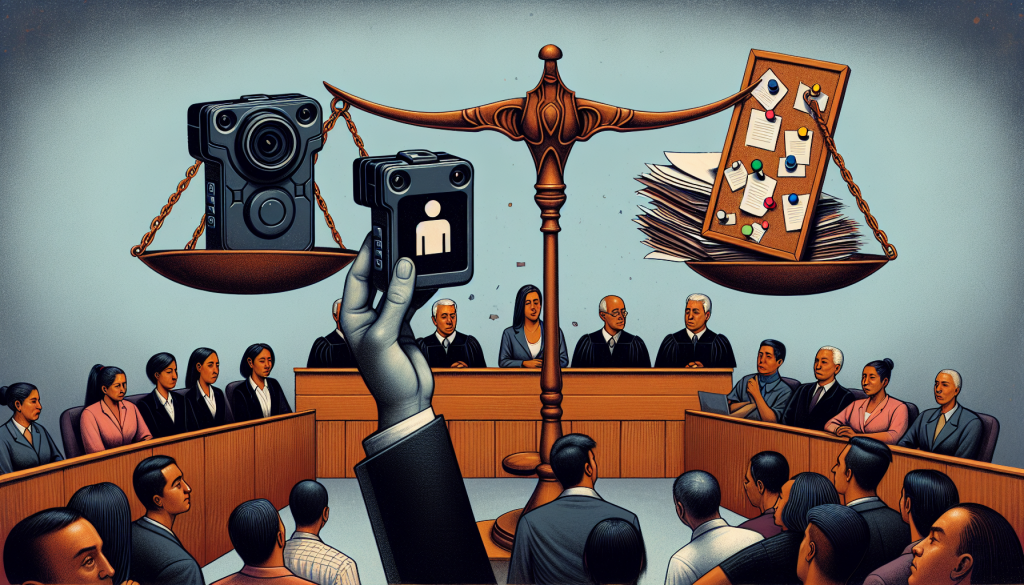
Body Cameras on Trial: Privacy vs. Accountability in Policing
With growing concerns over police brutality and racial bias in law enforcement, the use of body cameras has become a contentious issue in policing. While some argue that body cameras offer a much-needed layer of accountability and transparency, others raise concerns about the invasion of privacy for both officers and civilians. In this article, we will delve into the ongoing debate surrounding body cameras on trial, exploring the tension between privacy and accountability in policing.
The Rise of Body Cameras in Policing
The use of body cameras in law enforcement has been rapidly increasing in recent years. In fact, a study by the Bureau of Justice Statistics found that in 2016, nearly half of all U.S. law enforcement agencies had at least one officer equipped with a body camera. This rise in adoption is largely due to the potential benefits of body cameras, such as increased transparency and improved police/community relations.
The Promise of Accountability
One of the main arguments in favor of body cameras is that they hold police officers accountable for their actions. The recordings can serve as undeniable evidence in cases of excessive force or misconduct. This has the potential to not only ensure justice for victims, but also to deter officers from engaging in such behavior in the first place. Additionally, body cameras can provide an unbiased account of interactions between officers and civilians, reducing disputes and increasing trust in law enforcement.
The Privacy Concerns
On the other hand, opponents of body cameras argue that they come at a cost to privacy. Not only do civilians feel uncomfortable being constantly monitored, but officers themselves may feel limited in performing their duties. For example, officers may hesitate to enter private residences or engage in confidential conversations with victims or informants, knowing that they are being recorded. This could hinder their effectiveness in protecting and serving their community.
The Challenges of Implementation
Aside from the debate over privacy versus accountability, there are also practical challenges to consider when implementing body cameras. The cost of equipment, video storage, and maintenance can be a burden for already stretched police budgets. There are also concerns about the reliability and accuracy of the technology, as well as the potential for footage to be misused or tampered with. Proper regulations and policies are necessary to address these issues and ensure that body cameras are used ethically and effectively.
The Verdict
So, where does the balance lie between privacy and accountability in the use of body cameras in policing? As with many complex issues, there is no clear answer. Both privacy and accountability are important in maintaining a healthy relationship between law enforcement and the community. It is crucial for police departments to carefully consider and address the concerns of both sides when making a decision on whether to implement body cameras. Clear policies and guidelines must be established to protect both officers and civilians, while also promoting transparency and accountability.
The Future of Body Cameras in Policing
As the debate continues, it is clear that the use of body cameras in policing is here to stay. Whether the focus is on privacy or accountability, it is important for all stakeholders to work together to find a solution that balances both concerns. Proper guidelines, regulations, and continued research and development of the technology will be key in ensuring that body cameras are used in a responsible and effective manner, ultimately benefiting both law enforcement and the communities they serve.
Conclusion
In conclusion, the issue of body cameras on trial highlights the complex and ongoing debate between privacy and accountability in policing. While they offer potential benefits for both officers and civilians, their use also raises legitimate concerns about privacy and practical challenges of implementation. However, with careful consideration and proper regulations, body cameras can be a valuable tool in promoting transparency and accountability in law enforcement. It is up to police departments and policymakers to find the right balance and ensure that the use of body cameras aligns with the core principles of privacy and accountability in policing.
